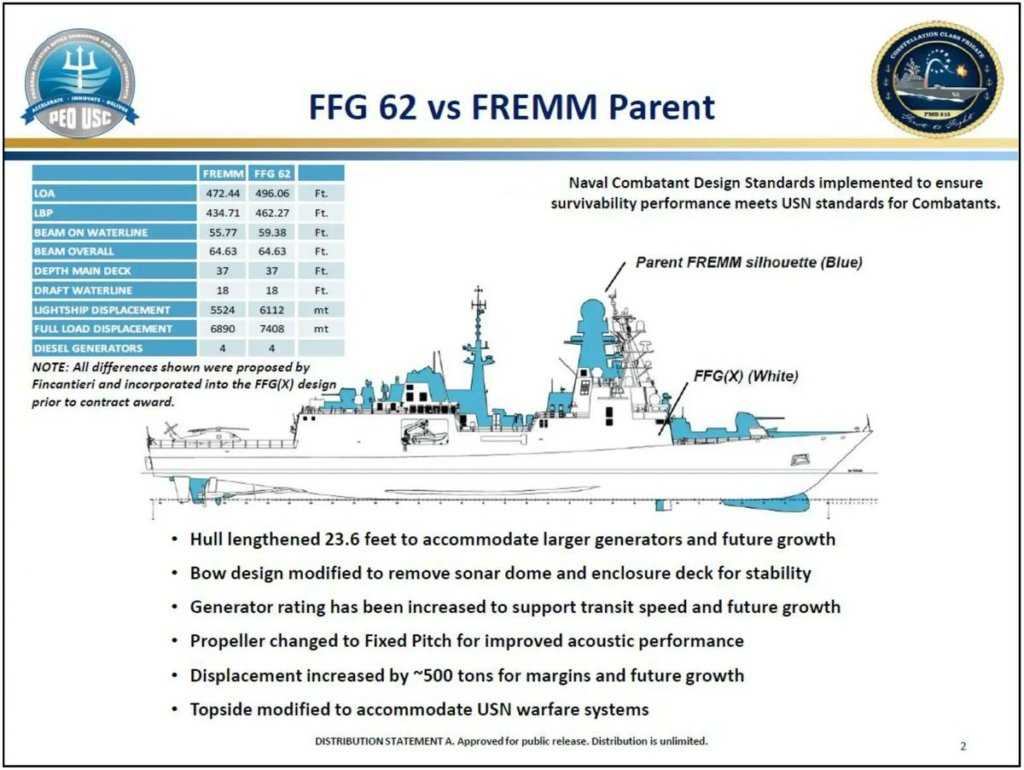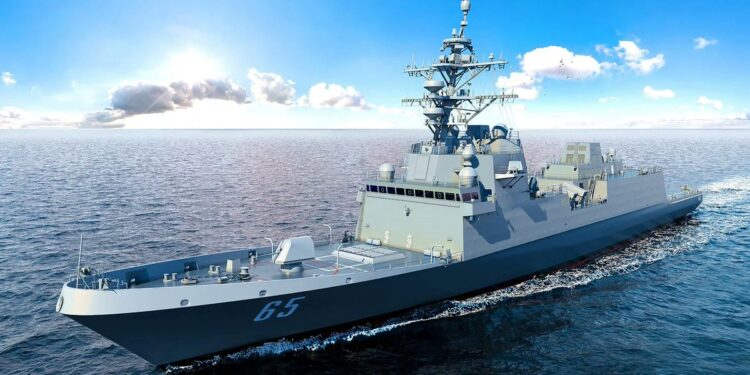In a significant advancement for U.S.-Greece defense cooperation, Washington has formally invited Athens to participate in the joint design program for the Constellation-class frigates. This development, confirmed just hours ago, marks a pivotal moment in bilateral naval collaboration, positioning Greece as a key partner in shaping the future of this advanced warship program. The partnership not only enhances Greece’s role in cutting-edge naval architecture but also opens the door to potential co-production opportunities, promising long-term benefits for the Hellenic Navy.

The U.S. government has delivered a signed Letter of Acceptance (LOA) to Greece’s Ministry of National Defense, officially designating Greece as a partner in the design phase of the Constellation-class frigates. Greece’s General Directorate of Armaments and Investments has reciprocated with its endorsement, solidifying a mutual commitment to a collaborative future. This agreement paves the way for Greece to contribute to the design process and potentially engage in the co-production of these state-of-the-art vessels, aligning with the Hellenic Navy’s modernization goals.
A Year in the Making
This milestone follows approximately one year of negotiations, during which Greece’s Defense Minister revealed that the U.S. had accepted a proposal to include the Hellenic Navy in the Constellation-class program, known as the “Connie” program. Greece’s participation comes with a financial contribution of €2.7 million—a strategic investment for access to a next-generation naval platform. In the coming days, the Defense Minister is expected to address the Greek Parliament’s relevant committee, providing further details on this long-term initiative to strengthen the nation’s naval capabilities.
Navigating U.S. Policy Dynamics
While this partnership represents a significant opportunity, it is not without uncertainties. The Hellenic Navy and the Ministry of National Defense are closely monitoring developments in the United States, particularly under the new administration of President Donald Trump. Reports suggest that Trump prioritizes investment in established destroyer programs, which form the backbone of the U.S. Navy’s fleet, over the Constellation-class frigate program.
According to a recent article by Maritime Executive, the administration may be adjusting funding priorities, potentially reducing support for the frigate program due to its delays and rising costs.
Further insights from Breaking Defense highlight Trump’s criticism of the program’s cost overruns and prolonged timeline. He has reportedly remarked that changes to the original design by “admirals and generals” have inflated expenses, stating, “They started playing and experimenting and changing the design, and that costs a lot of money.” Such sentiments underscore the challenges facing the program’s future, which could impact Greece’s expectations.
Timeline and Implications for Greece
The first Constellation-class frigate is slated for delivery to the U.S. Navy in 2029, contingent on the program receiving continued approval. However, this timeline suggests that the Hellenic Navy is unlikely to acquire such a vessel before 2035, tempering short-term expectations. Despite this, Greece’s inclusion in the design phase is a forward-looking step, laying the foundation for a modernized fleet over the next decade.
In the immediate term, the Greek Parliament’s committee is expected to clarify how the Hellenic Navy will be supported to address pressing needs. While the U.S. invitation to join the Constellation program is a positive development, it does not resolve the navy’s existing challenges overnight. The naval staff has outlined a clear roadmap through 2030, which reportedly enjoys the full support of the political leadership. Key priorities include maintaining the operational readiness of the current fleet, acquiring three or four FDI frigates, negotiating for two Bergamini-class frigates, modernizing MEKO frigates and submarines, and selecting the next-generation underwater combat platform.









